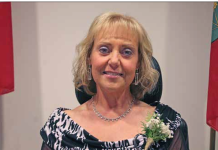by Dr. Nell Thomas
We are experiencing the largest vaccination campaign in human history.
Thanks to global collaboration of more than 1,500 agencies, we are witnessing an unprecedented choreographed-on-thefly immunization program that has, in three months, administered 349,398,520 vaccines – as of March 9 – globally. The most rapid and complex vaccine rollout in history requires creative choreographers, in this case the World Health Organization (WHO), the Coalition for Epidemic Preparedness Innovations (CEPI), and Gavi, the Vaccine Alliance (founded by Bill and Melinda Gates). Together, these powerful groups are leading COVAX, a global vaccine-sharing plan to ensure all countries have access to vaccinations.
Backed by the UN and supported on the ground by Unicef (a partner in delivery of the vaccines), COVAX is part of the Access to COVID-19 Tools (ACT) Accelerator, a ground-breaking global collaboration that is accelerating the development, production and equitable access to COVID-19 tests, treatments and vaccines. They plan to obtain and distribute two billion doses of vaccine by the end of 2021. That includes 1.3 billion to the developing regions that are eligible for support through the pooled resources available from COVAX (92 lower income economies are eligible).
Equitable access. Isn’t it a warm feeling to know that everyone will have equal access to COVID-19 vaccines, regardless of ability to pay? Not including COVID-19, vaccinating saves two to three million lives annually.
Within Canada, extensive ethical analyses have guided the phased rollout of COVID19 vaccination. Who is most vulnerable to infection? Who is most at risk of contracting the virus? And of those, who is most likely to have complications, or die? Who can society not risk losing in this pandemic? Who, most reasonably, is able to wait a little longer to be immunized? It is no surprise that our most vulnerable, our long-term care residents, were first to receive their vaccines.
All of these difficult questions would not be necessary if there was an instant and abundant supply of vaccine, and a magical wand to distribute them. But resources are limited and strategic planning is unfolding in real time by people learning critical details (how to store, ship, unpack, prepare, how many vaccines are coming, from where, and to where) every hour of each new day.
In Ontario, the three-phase rollout is on target. Data as of March 8: 21,882 daily doses administered, 912,486 total doses so far, and 273,676 people fully vaccinated. In Canada, as of March 6, 565,719 people have received their second dose, 1,821,470 have received their first dose.
And as of March 8, globally, there have been 116,521,281 confirmed cases of COVID-19 and 2,589,548 deaths reported.
But some people remain hesitant, despite the very positive track record of immunization. Remember that COVID Corner article on Smallpox eradication? The only disease to have been successfully eradicated by vaccination. How have vaccines changed human history? The average number of smallpox deaths annually per million people between the years 1700 and 1797, when there were no vaccines, was 3,000. That annual average dropped to 417 between the years 1838 and 1853 when vaccination was optional, and dropped again to 214 between 1857 and 1866 when vaccination was compulsory. And then when vaccination was enforced, between the years 1889 and 1898, the number dropped to 10.
The Canadian Institute for Health Information reported the total number of health care workers infected with COVID19 has tripled since July, 2020. By January 15, 2021, health care workers accounted for over 65,920 (less than nine per cent) of Canada’s 695,707 confirmed cases. In Canada, as of February 27, 52.8 per cent of health care workers and 85.29 per cent of seniors living in group settings had received at least one dose of a COVID-19 vaccine.
Now that sounds like ethical vaccination.




